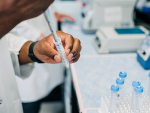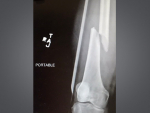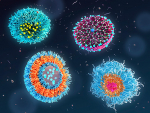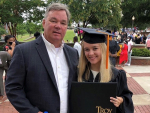Displaying items by tag: school of medicine
A study claims vision screening in older drivers does not identify those who are likely to have collisions in the future.
Tagged under
Celebrate the professional achievements of this year’s UAB Excellence in Business Top 25 Award winners June 16.
Tagged under
Alyson Haynes beat breast cancer through her determination and a strong support system at the O’Neal Comprehensive Cancer Center at UAB.
Tagged under
Five UAB graduate students received more than $118,000 in awards to strengthen graduate research projects.
Tagged under
This grant is being used to fund the first-of-its-kind and largest clinical study in the United States to perform deep physiological phenotyping and will exclusively recruit Black adults to study the use of FDA-approved medications and their role in improving cardiometabolic health.
Tagged under
Supporting on-campus housing for Birmingham Promise scholars would enhance the well-rounded collegiate experience students aim to receive while at UAB.
Tagged under
As part of a study funded by Pfizer, Inc., UAB will partner with Whitfield Hospital in Demopolis and John Paul Jones Hospital in Camden to evaluate how thermography cameras can improve telemedicine visits for arthritis patients in rural Alabama.
Tagged under
Kidney failure experts recommend new tool that eliminates race as a determining factor for diagnosis
New findings published in the Journal of the American Medical Association show an eGFR equation that excludes race as a coefficient and includes creatine and cystatin C measurements could demonstrate racial differences in the risk of kidney failure requiring dialysis.
Tagged under
A first-of-its-kind snakebite program at UAB aims to provide better long term treatment of venomous bites, as well as gain a better understanding of the medical consequences of snakebite.
Tagged under
A UAB physician-turned-patient reflects on her journey to healing and recovery from breast cancer for National Cancer Survivors Day.
Tagged under
Her leg broke at mile 16 of a marathon. Thanks to UAB Orthopaedics, she was racing again in seven months.
Tagged under
The Vilcek Foundation and The Arnold P. Gold Foundation have announced Mona Fouad, M.D., as the recipient of the 2022 Vilcek-Gold Award for Humanism in Healthcare.
Tagged under
Tagged under
The investigators will look at diet’s impact on mobility, physical and cognitive function, as well as on pain, fatigue, sleep, mood and anxiety, in people with multiple sclerosis
Tagged under
Medical professionals are calling on the World Health Assembly to pass a resolution calling for folic acid fortification in staple foods to prevent spina bifida worldwide.
Tagged under
Tagged under
UAB experts provide ways seniors can take and maintain control of their health in several areas of wellness.
Tagged under
The biodegradable nanovehicles accumulated in human breast cancer tumors in mice after systemic injection, and they inhibited oncogene expression and extended survival of the mice.
Tagged under
Radiofrequency ablation precisely delivers heat energy that can destroy lesions within the brain that are the cause of seizures.
Tagged under
Anyone traveling more than four hours by air, car or bus can be at risk for blood clots. The director of the UAB Vein Center provides tips on how to prevent blood clots when traveling.
Tagged under



















